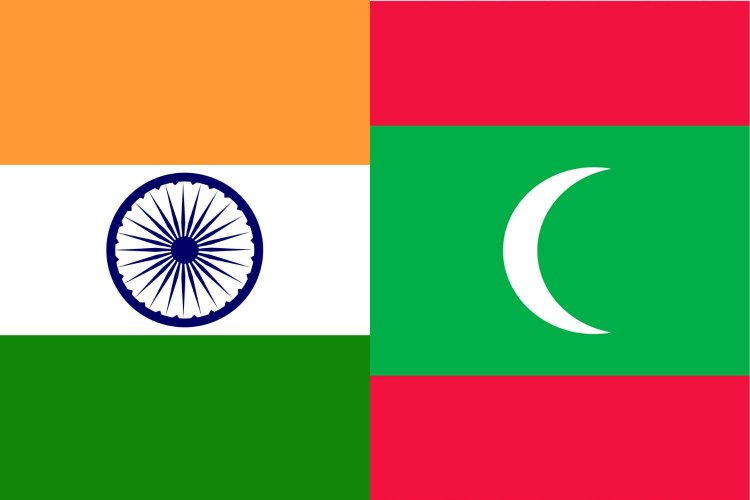India - Maldives: Advantage China
STORIES, ANALYSES, EXPERT VIEWS

The not-unexpected regime change in the Maldives, writes Maj Gen Ashok K Mehta retd. (Military Commentator) “distinctly favours China and will disturb the strategic matrix in India’s neighbourhood, especially in the Indian Ocean Region. It is the first time that any election in the region was fought conspicuously as a battle between two slogans — ‘India First’ and ‘India Out’. This postulation was avoidable. Some called the elections a virtual referendum on India or China. The opposition party did not mask its pro-China leaning and staked its claim to power on the sovereignty plank — no foreign troops on Maldivian soil.”
India’s investments in the Maldives
Like in Sri Lanka, given the Maldives’ geography, “India has invested heavily in its development and security. The India-China contestation in South Asia is being won by Beijing’s deep pockets and other asymmetries in its favour…..”
India’s investments in the Maldives include a $500-million Line of Credit, with a total commitment of up to $2 billion. Some 38 projects are under construction, in addition to a naval harbour at the Uthuru atoll. Around 75 military personnel are stationed at Addu and Lammu since 2014.
India-Maldives-Sri Lanka Trilateral Maritime Security Agreement
India states Mehta, is therefore, “unhappy with the regime change, especially after extricating Sri Lanka from China’s embrace through an assistance of $4 billion to Colombo during its economic meltdown and securing an IMF loan, currently stuck in its second tranche. The India-Maldives-Sri Lanka Trilateral Maritime Security Agreement is vital for overseeing the sea lanes of communications to the Malacca Straits; this could be the first casualty. Sri Lanka and the Maldives have close relations and are joined at the hip. Beijing had distanced itself from Colombo’s economic collapse and recovery, letting India do the heavy lifting. There is a third player in India’s neighbourhood, which has its own axe to grind. The US is very active in Colombo, where China’s Belt and Road Initiative (BRI) did not let the US MCC (Millennium Challenge Corporation) take root.”
China making inroads in Bhutan, Bangladesh and Afghanistan
In India other neighbourhood Mehta writes “China is galloping to progress in its border dispute with Bhutan, especially after the Galwan clash….In Bangladesh, an uneasy balance exists in the strategic matrix. Although the Bangladesh military opts to buy Chinese equipment and platforms, Sheikh Hasina’s government maintains good relations with India. India….is worried about a submarine harbour China is known to be constructing near Chittagong. Elections are due in January, and a free and fair poll under a neutral caretaker government could spring a Maldives-like surprise.”
In Afghanistan, where India has invested $3 billion, “China has made stellar progress. Last month, it replaced its Ambassador and fielded a special envoy without formally recognising the Taliban. The without-limits partnership with Russia, arguably the most active country in Afghanistan, is proving useful to Beijing in Kabul. China has invested in mineral resources, especially lithium, whose potential reserves are hugely exaggerated. The Chinese have agreed to extend the China-Pakistan Economic Corridor through Afghanistan, a diversion which has been on the drawing board for years. India maintains a technical office in Kabul for humanitarian aid and will likely close the Afghan embassy in New Delhi.”
In Kathmandu however, “Beijing is bogged down despite Maoists leading the government and Communists in the opposition. Prime Minister Pushpa Kamal Dahal’s meeting last month with President Xi Jinping in Hangzhou did not yield concrete results, though the agreements on paper repeated commitments made by Xi in 2014 when he visited Nepal for the first time….”
Containing Chinese influence
Coming back to Maldives politics, Harsha Kakar (retired Major-General) writes “India will definitely find an increased Chinese presence in the country. It will have its work cut out to contain the Chinese influence on the island. It cannot afford a second Hambantota port in its vicinity. Any Chinese strategic gains will be exploited politically as was done in the last elections. Maldives elections are yet not over. Parliament elections are scheduled for April 2024 and city council elections thereafter. These will need to be observed.
“Muizzu has not specifically mentioned being pro-China in any form however knowing the tilt of Yameen he is believed to be so, while claiming to be pro-Maldives. His campaign only mentioned wanting Indian armed forces out of Maldives, intending to exploit the fear of the big brother. These are early days yet. Which way would the tilt go is to be seen. China can never replace India in terms of proximity, commonness of culture or language. In case there is violence against Indians or Indian assets, support flowing from India could be stalled. Ties with India can never be replaced by China.”
India will bounce back: Historically, writes Kakar India managed to contain growing anti-India sentiment in its neighbourhood. In Bangladesh it did so “during the premiership of Khalida Zia from 1991-96 and again from 2001-2006. It also managed to overcome multiple tenures of pro-China KP Sharma Oli in Nepal. It also endured the pro-China tilt of Mahinda Rajapaksa in Sri Lanka. Every time such a situation arises, India bides its time, continuing to provide support, employing its soft power and finally bouncing back, all the while keeping a close eye on developments, ensuring the situation does not cross a threshold. The same will be the case with Maldives.”
















